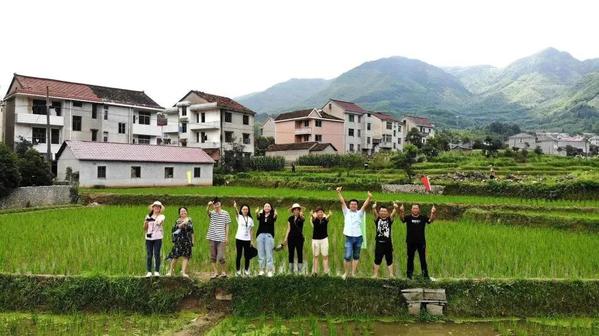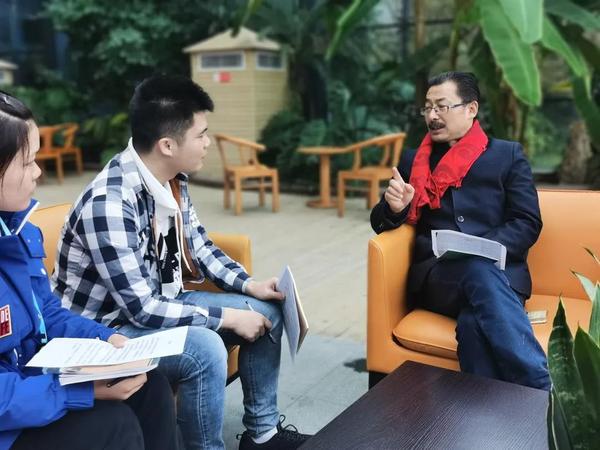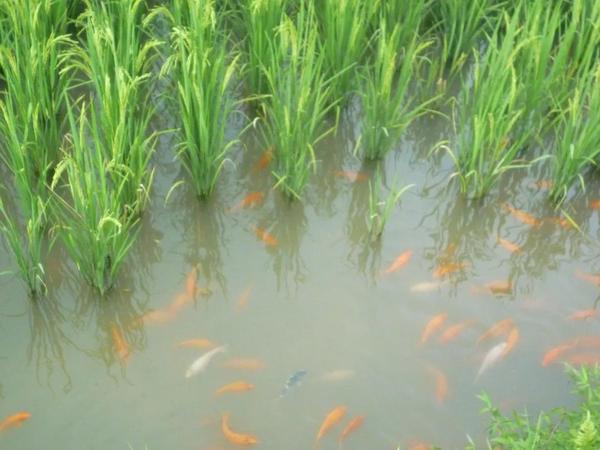Dialogue@ZJU: With the “Smart Rice-fish Culture” team
[Message from the Editor: The “Smart Rice-fish Culture” team from the Zhejiang University College of Life Sciences clinched two gold medals in the 6th China College Students' Internet Plus Innovation and Entrepreneurship Competition and in the 12th “Challenge Cup” National College Student Business Plan Competition. We’re glad to invite team advisor TANG Jianjun, team leader ZHANG Jian, and team members WU Haoran and HUANG Ziyi to share their project with us].

Q1: Prof. Tang, first of all, we’d like to congratulate your team on winning two gold medals in major competitions. Rice-fish symbiosis or rice-fish ecological farming is one of the burgeoning industries in China. Could you share with us what problems can be addressed in China’s current agricultural development with this rice-fishing farming system?
TANG Jianjun: Sure. Rice-fish symbiosis integrates rice production and aquaculture in the same rice paddy in an eco-friendly and resource-efficient manner. Rice cultivation can provide food security and aquaculture can yield protein products and improve agricultural production efficiency. At the national level, the rice-fish farming system contributes to stable food production, reduction in fertilizer and pesticide use, and environmentally-friendliness. From the perspective of farmers, it increases their incomes.

Q2: What impact does the rice-fish farming system have on the sustainable development of the ecological environment?
TANG Jianjun: Our research found that in the rice-fish farming system, about 30% of the nutrients needed for the growth of rice derive from the metabolic waste of free-ranging aquatic organisms, which not only reduces the environmental pollution caused by the metabolic waste of the fish, but also brings down the cost of fertilizers from farmers. Fish can also feed on rice flowers. In hot summer, the rice canopy also provides shade for fish. Therefore, rice and fish are mutually beneficial, which is of much help to the sustainable development of the ecological environment.
Q3: Dr. ZHANG, could you talk about how you feel about your dazzling performance in the two major competitions?
ZHANG Jian: It’s a great honor to win gold medals. College of Life Sciences was very supportive and rendered a lot of help and guidance to us. In addition, I’d like to thank each and every member of our team. Every one of us on the team contributed all they can to the project. We set up a division of labor in accordance with our specialties and disciplinary backgrounds so that we could not only bring into full play our strengths but also develop together.
Q4: How did you form your team?
ZHANG Jian: We built a multi-disciplinary team to meet the needs of our project. For example, we needed not only students majoring in biology and nutrition science but also ones adept at video editing and PowerPoint designing. First, we made our preliminary selection among those who submitted their résumés. Second, a panel of judges, composed of teachers and senior members, interviewed and evaluated every candidate in a comprehensive way.

Q5: Ziyi, could you tell us why you joined this team?
HUANG Ziyi: On the one hand, the university encouraged undergraduates to hone their abilities. On the other hand, the project was based on the cutting-edge work of the lab. I was very interested in the ecology of the rice-fish farming system. Besides, I also acquired relevant knowledge in biological data mining. I joined the team in the hope of sharpening my capacity.
Q6: Haoran, did you come across any difficulty in these two competitions?
WU Haoran: Yep. As an undergraduate, I was subjected to overwhelming academic burdens. In this case, time management turned out to be a big challenge for me. Fortunately, our team had a very clear division of labor and we were able to arrange tasks flexibly according to our own schedules. Thus, the project progressed in apple-pie order. Moreover, I felt at sea about the concepts in entrepreneurship at the beginning, and it was after several field trips that I gained an insightful understanding of these concepts.
Source: College of Life Sciences